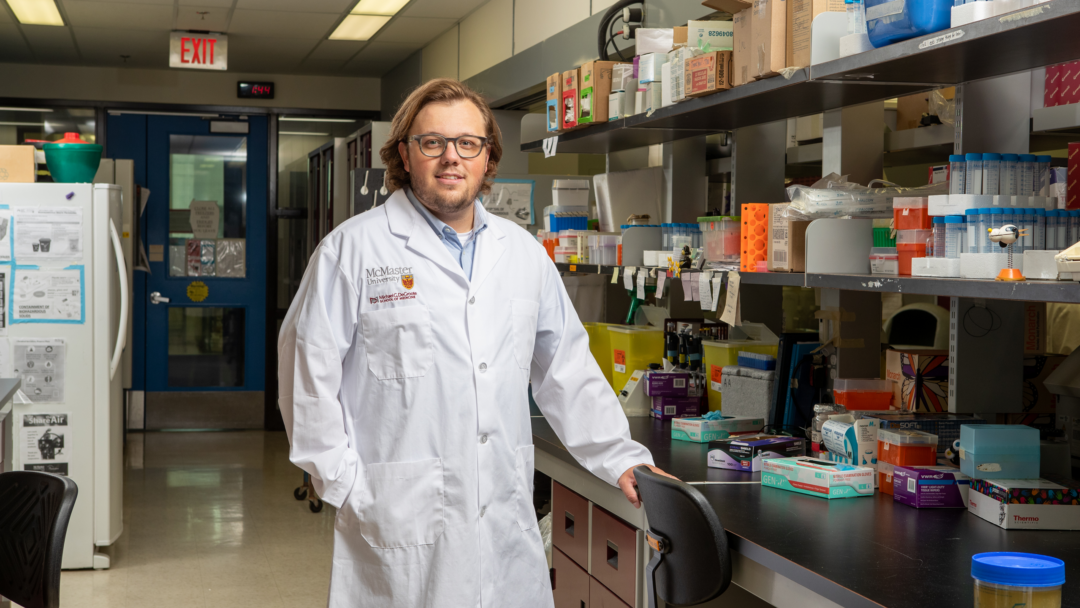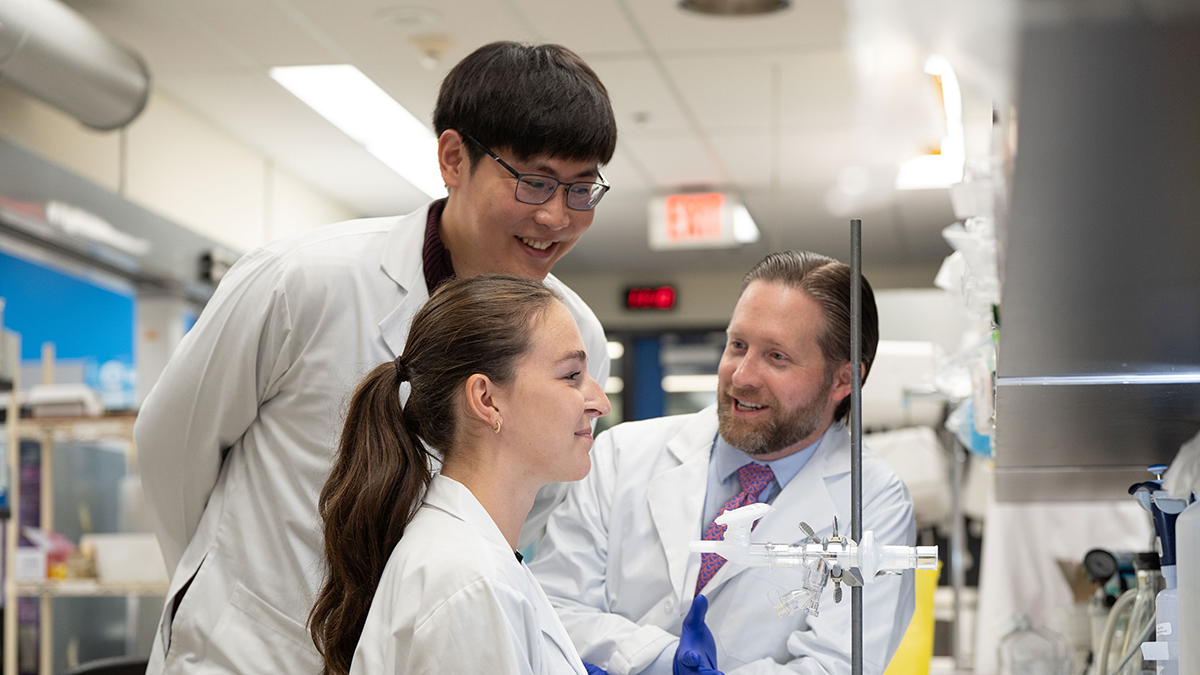McMaster researchers create instruction manual to detect rare cells that could unlock secrets to allergies

Researchers with McMaster University have created the instruction manual that will help scientists across the globe find hard to detect B cells.
Led by PhD student Allyssa Phelps and Department of Medicine Assistant Professor Josh Koenig, researchers wanted to chart a path to finding these cells as part of their work in understanding food allergies. Their work was published in the journal Nature Protocols on Jan. 19, 2024.
B cells are a type of immune cell that makes antibodies. These cells help fight conditions like cancer and infections but can also cause autoimmune diseases and allergies.
“One of the big problems with trying to study these B cells, the ones that make these antibodies that have all kinds of different and very important functions, is that they’re really, really, rare. It’s hard to find them. And so, you have to have very good tools that will help you study these things,” Koenig says.
To give an example of just how rare these cells can be, Koenig pointed to a peanut-specific B cell. It makes up less than 0.0001 per cent of immune cells in human blood.
The team adopted a method originally created by Justin Taylor, who now operates the Taylor Lab out of the University of Virginia. Taylor created a method using antigen tetramers to sensitively tag and enrich specific B cells so they can be detected.
“With these protocols now published, more researchers around the globe will be able to make these types of tools to help to push their science ahead,” Taylor says.
Tetramers are made up of four antigen molecules, which in this case, can be customized by scientists. The customization is vast and can cover everything from peanuts to COVID-19 specific B cells.
“After using the technology for a few years in several of our studies and making multiple different allergen tetramers and antigen tetramers for other people, we decided to write up a protocol paper to help other people study these incredibly important B cells,” says Phelps.
In addition to better understanding how allergies work in humans, tetramers can be used to study the efficacy of vaccines. This is something that was done by Koenig and his team in assisting McMaster researchers Matthew Miller, Brian Lichty, and Zhou Xing in determining whether their vaccine candidate activated protective COVID-specific B cells.
The study was supported in part by a $10-million donation by the Schroeder Foundation to McMaster University. Funding was also provided from ALK Abello A/S, a pharmaceutical company based in Denmark.
ResearchRelated News
News Listing

McMaster researchers get federal funding to study emerging bird flu threat
Dept. Biochem, Research
15 hours ago

Brighter World ➚
Analysis: Why can’t we die at home? Expanding home care could reduce the financial and environmental cost of dying in hospital
Research
18 hours ago

McMaster-affiliated non-profit gifts $300,000 to Global Nexus to support pandemic research
Collaborations & Partnerships, Research
6 days ago
